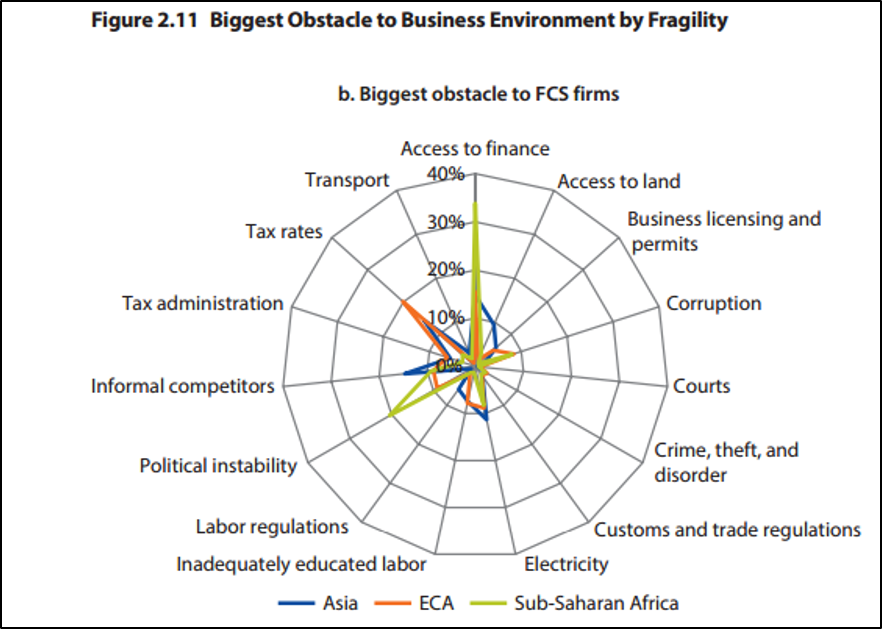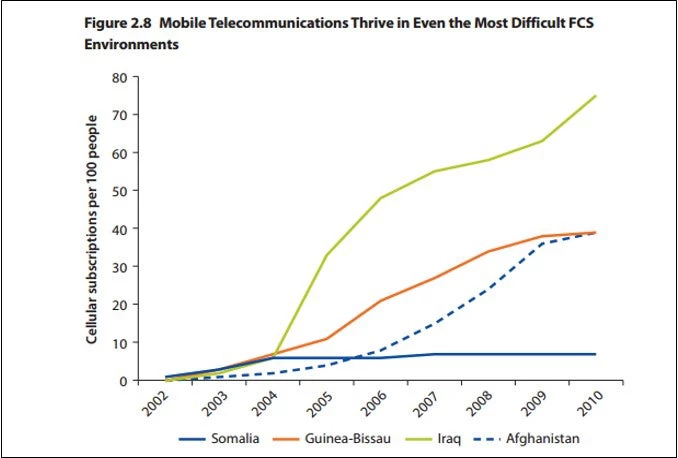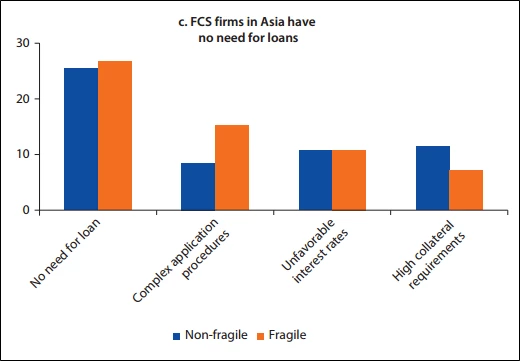It’s a secret to no one that getting things done in fragile and conflict-affected (FCS) situations is more difficult than in normal, peaceful environments.
A recent World Bank report “ The Small Entrepreneur in Fragile and Conflict-Affected Situations” looked into the motives and challenges of small entrepreneurs in FCS countries and made a number of interesting discoveries. They found that compared to entrepreneurs elsewhere, entrepreneurs in FCS have different characteristics and face significantly different challenges. FCS enterprises tend to be small, informal and to be engaged in sectors that are trade and service oriented.
Three other things they found are illustrated in the charts below. These findings came as quite a surprise to us.
1. The primary obstacle for entrepreneurs in FCS countries is poor access to finance
A recent World Bank report “ The Small Entrepreneur in Fragile and Conflict-Affected Situations” looked into the motives and challenges of small entrepreneurs in FCS countries and made a number of interesting discoveries. They found that compared to entrepreneurs elsewhere, entrepreneurs in FCS have different characteristics and face significantly different challenges. FCS enterprises tend to be small, informal and to be engaged in sectors that are trade and service oriented.
Three other things they found are illustrated in the charts below. These findings came as quite a surprise to us.
1. The primary obstacle for entrepreneurs in FCS countries is poor access to finance

2. Mobile communications thrive in even most difficult FCS environments
3. FCS firms in Asia have no needs for loans




Join the Conversation